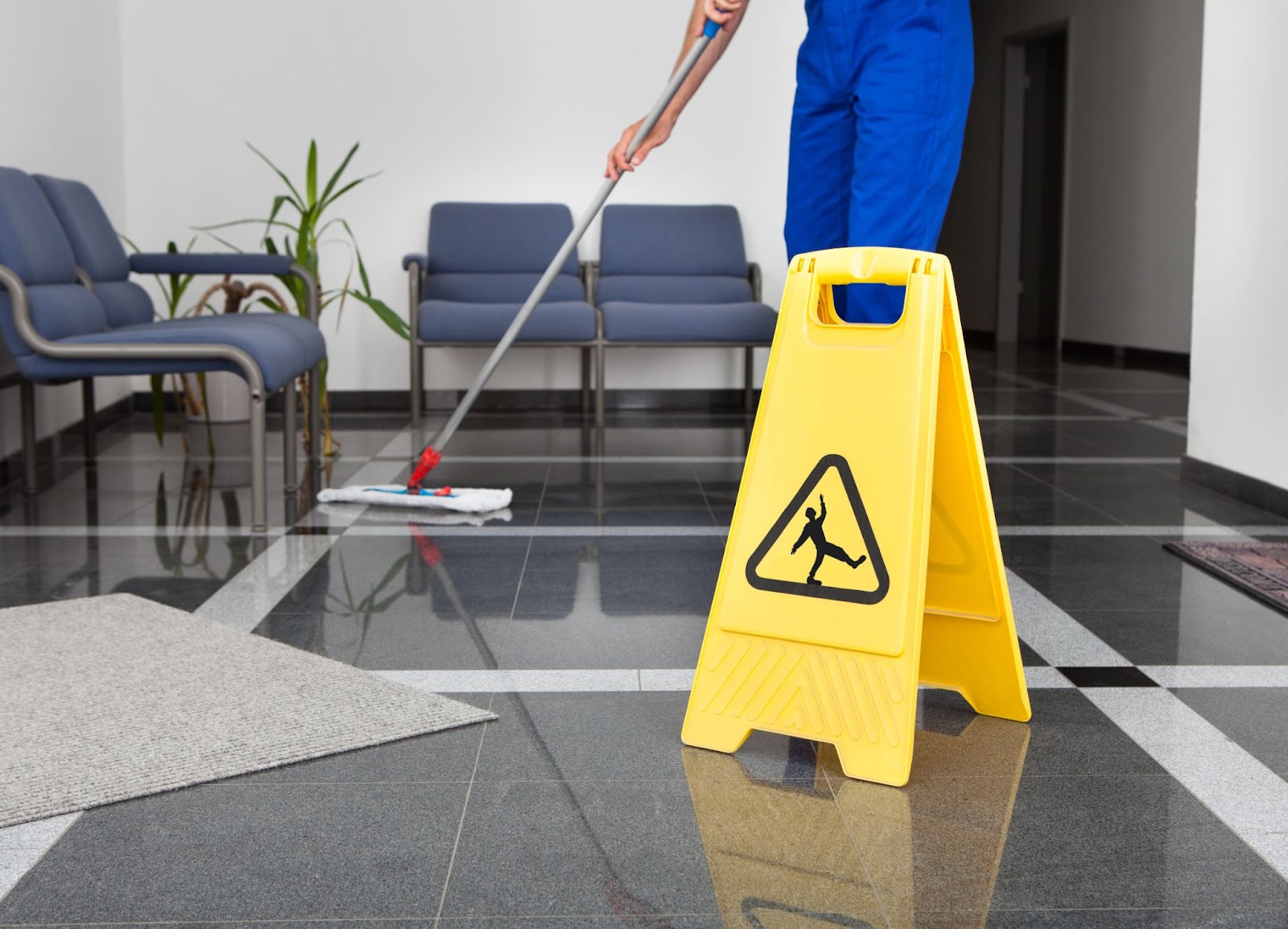

Commercial cleaning has become an indispensable service in the United Kingdom, playing a vital role in maintaining hygienic, safe, and efficient work environments across the nation. This specialized cleaning sector caters to a wide range of businesses, organisations, and commercial properties, offering professional-grade cleaning solutions that surpass standard janitorial services.
The UK commercial cleaning industry has experienced substantial growth in recent years, with the market value projected to reach £3.9 billion by 2027. This growth is driven by an increased awareness of the importance of cleanliness and hygiene in commercial spaces, particularly in the aftermath of the COVID-19 pandemic. The pandemic has significantly altered perceptions of cleanliness, with businesses now placing a higher priority on maintaining sanitary environments.
Commercial cleaning services offer numerous benefits for UK businesses. Primarily, they contribute to creating healthier work environments by reducing the presence of bacteria, allergens, and germs in the workplace. This can lead to reduced absenteeism and increased productivity among employees. Moreover, a clean and well-maintained office space creates a positive first impression on clients, visitors, and potential business partners, reflecting favourably on the company’s image and professionalism.
One of the key advantages of hiring a commercial cleaning service in the UK is the relief it provides to management and staff. By outsourcing cleaning tasks, employees can focus on their core responsibilities without the added burden of maintaining cleanliness. This not only saves time but also ensures that cleaning is performed to a high standard by trained professionals who have access to specialised equipment and cleaning products that comply with UK regulations.
Commercial cleaning services in the UK are highly versatile and can be tailored to meet the specific needs of different industries and property types. Some common types of commercial cleaning include office cleaning, retail store cleaning, healthcare facility cleaning, educational institution cleaning, and industrial cleaning. Each of these sectors has unique requirements and standards that professional cleaning companies are equipped to handle, often in line with UK-specific regulations and guidelines.
The UK commercial cleaning industry is also embracing new trends and technologies to improve efficiency and effectiveness. There is a growing demand for eco-friendly cleaning solutions and practices, with many British businesses seeking cleaning companies that use environmentally sustainable products and methods. This aligns with the UK’s commitment to reducing its environmental impact and achieving net-zero emissions by 2050.
Additionally, the use of advanced cleaning equipment and techniques is becoming more prevalent in the UK industry. Technologies such as electrostatic disinfection and UV-C light sanitisation are being adopted to provide more thorough and efficient cleaning services. These innovations are particularly relevant in high-traffic areas and sectors that require stringent hygiene standards, such as healthcare facilities and food preparation areas. The commercial cleaning sector in the UK also faces unique challenges, including labour shortages and the need to adapt to changing workplace dynamics, such as the increase in remote and hybrid working models. However, these challenges are driving innovation in the industry, with companies exploring automation and IoT-enabled cleaning solutions to enhance efficiency and service quality.
In conclusion, commercial cleaning is a crucial service that significantly contributes to the health, safety, and productivity of businesses across various sectors in the UK. As the industry continues to evolve and grow, it remains an essential component of maintaining professional and hygienic commercial spaces throughout the nation. By investing in professional commercial cleaning services, UK businesses can ensure a clean, healthy, and welcoming environment for their employees, clients, and visitors, ultimately contributing to their overall success and reputation in the competitive British market.








